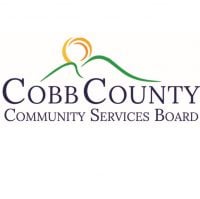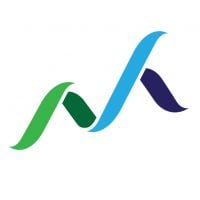Transitional Family Services
Drug Rehab Center in Atlanta, Georgia
- Substance Abuse
- Opioid Addiction
- Drug Addiction
- Alcoholism
Transitional Family Services is a nonprofit addiction treatment facility located in Atlanta, Georgia that provides a variety of evidence-based treatment services and a unique harm reduction program to individuals and families affected by addiction.
Multiple patients have reported Transitional Family Services as permanently closed.
Research other rehabs in Atlanta, Georgia, or get help finding an open facility.
Our experts will find you an alternative facility.
(888) 674-0062 24/7 Free, Confidential, Expert HotlineAbout This Georgia Facility
Transitional Family Services (TFS) is a Nonprofit Addiction Treatment Facility located in Atlanta, Georgia that provides continuous care and support to individuals and families affected by addiction. TFS Values recovery and embraces an integrated model of care that involves shared responsibility and collaborative partnerships among individuals, families, and other providers. Their goal is to provide individuals, who have been affected by addiction with resources, treatment, support, and a strong sense of community to help them in their journey towards full recovery.
At TFS, they provide a variety of services that assist those struggling with addiction in all stages of the recovery process. They offer evidence-based treatment in the form of individual, group, and family counseling. They also offer substance abuse assessments, relapse prevention, and medication management. Additionally, they provide vocational skills training, life skills classes, self-help groups, and case management. In addition, for those who need more intensive support, TFS has an inpatient residential program that provides medical, psychiatric, and therapeutic services to help individuals get back on track.
Transitional Family Services is an accredited facility that offers a wide range of addiction treatment services. They are licensed by the Georgia State Board of Addiction and Substance Abuse and have received numerous awards from organizations such as the Society of Addiction Specialists Award and the International Organization of Assisted Recovery Award. TFS also provides a unique Harm Reduction Program which is designed to help those with chronic substance use disorders engage in safer and healthier behaviors. This program includes education, counseling, and referrals to other services to help individuals make positive changes in their lives.
Genders
Ages
Modality
Additional
Conditions and Issues Treated
A drug abuser needs help because if no one helps them, they will not leave their vicious circle.
People who abuse drugs are likely to suffer from an addiction, which can cause serious health problems. It can also cause quarrels with people around them. It is common for drug abusers to have difficulty holding down jobs or relationships, but sometimes people around them can be quite tolerant. There are cases where the families of the drug abusers do not want to see them get any help, and the subject becomes controversial.
When it comes to helping drug abusers get sober, there are many options to choose from. It is essential to state that there is no “correct” way of doing things. People are different, and they need different types of help to get over their addiction.
Opioid addiction treatment should be done in a medically supervised drug rehab. Opioid addiction treatment will include detoxification and drug rehab counseling to help both the user and their loved ones learn how to live a successful sober lifestyle. Methadone, buprenorphine, and naltrexone are three medications that can help treat opioid addiction. Individual drug rehab counseling sessions can be helpful to discuss any questions or concerns with the drug treatment program.
Levels of Care Offered at Transitional Family Services
This center offers a variety of custom treatment tailored to individual recovery. Currently available are Aftercare Support, Drug Rehab, Outpatient, with additional therapies available as listed below.
Individuals struggling with drug addictions can get help from several treatment options, including inpatient and outpatient programs. Outpatient drug treatment programs can also provide patients with different levels of care, usually depending on the patient’s degree of addiction.
At an outpatient program in Atlanta, a patient will attend a recovery program during the day and return home in the evening. Suppose a patient is struggling with drug addiction. In that case, an outpatient program can serve as an effective transition point during the recovery process.
Aftercare is a part of drug rehabilitation. It is also known as “post-treatment support.” Aftercare programs are available for addicts after they complete drug rehab. It is often the final step in the recovery process. The goal of aftercare is to ensure that addicts maintain their achievements in rehab and do not relapse. Professionals generally provide aftercare (including addiction therapists, physicians, social workers, psychologists) and involve individual and group therapy sessions.
Therapies & Programs
Individual therapy is a critical component of addiction recovery. It allows the patients to go deep into their core issues and discover how to handle those problems better. Therapy can be conducted in individual sessions as well as group settings. In individual therapy for addiction, the patient meets with their therapist one-on-one to focus on the underlying issues. This allows patients to open up and discuss personal topics they may not feel comfortable discussing in a group setting. This type of therapy can help develop solutions specific to each patient, which helps speed up the recovery process.
Family therapy is a crucial part of drug treatment and getting sober. It is one of the most effective ways to help addicts stay on the path to long-term sobriety. When a drug addict decides that they want to try and get sober, it takes the support of every person they love to succeed. It can be incredibly difficult for loved ones to watch an addict go through the pain and suffering of withdrawal, but by being there with them and supporting them, they can help to make sure that the addiction never returns.
One of the most important parts of family therapy is the relapse prevention plan. During treatment, therapists and doctors will often sit down with the addict and their family to develop a plan in case the addict ever feels like they want to use again. This plan should involve steps the addict and family can take together to prevent them from relapsing in the future. An addict’s family can play a vital part in helping them to avoid relapse because they can spot the warning signs and help them get back on track before it becomes too much of a problem.
Group therapy helps prevent addicts from feeling isolated or unique in their situation by offering a sense of comfort and fellowship. It also creates a forum for addicts to build their support systems and learn from each other. The group therapy sessions at Transitional Family Services occur in a group setting rather than one-on-one to create a safer, controlled environment where addicts feel comfortable.
Payment Options Accepted
For specific insurance or payment methods please contact us.
Is your insurance accepted?
Ask an expert, call (888) 674-0062
Additional Details
Specifics, location, and helpful extra information.
Atlanta, Georgia 30339 Phone Number(770) 916-9031 Meta DetailsUpdated November 25, 2023
Staff Verified
Patient Reviews
There are no reviews yet. Be the first one to write one.
Atlanta, Georgia Addiction Information
Prescription opioid use has caused a large increase in the total amount of overdoses in Georgia. Almost 12% of the Georgia population uses illicit drugs each year, and slightly over 3.5% also abuses alcohol at the same time. This does not include those who binge-drink at least once a month, which includes 20% of all Georgians.
Addiction statistics for 2019 show that about 62% of people died from drug overdoses in Atlanta. Opioids were involved in 59.5% of those deaths. The community is plagued by the illegal drug trade, which contributes to crime and violence. In 2013, there were 9,570 admissions to substance abuse treatment programs in Atlanta. With patience and perseverance, you should be able to find the perfect treatment facility for your needs.
Treatment in Nearby Cities
- Cleveland, GA (63.1 mi.)
- Lilburn, GA (19.8 mi.)
- Calhoun, GA (48.9 mi.)
- Toccoa, GA (80.6 mi.)
- Statesboro, GA (186.2 mi.)
Centers near Transitional Family Services




The facility name, logo and brand are the property and registered trademarks of Transitional Family Services, and are being used for identification and informational purposes only. Use of these names, logos and brands shall not imply endorsement. RehabNow.org is not affiliated with or sponsored by Transitional Family Services.


